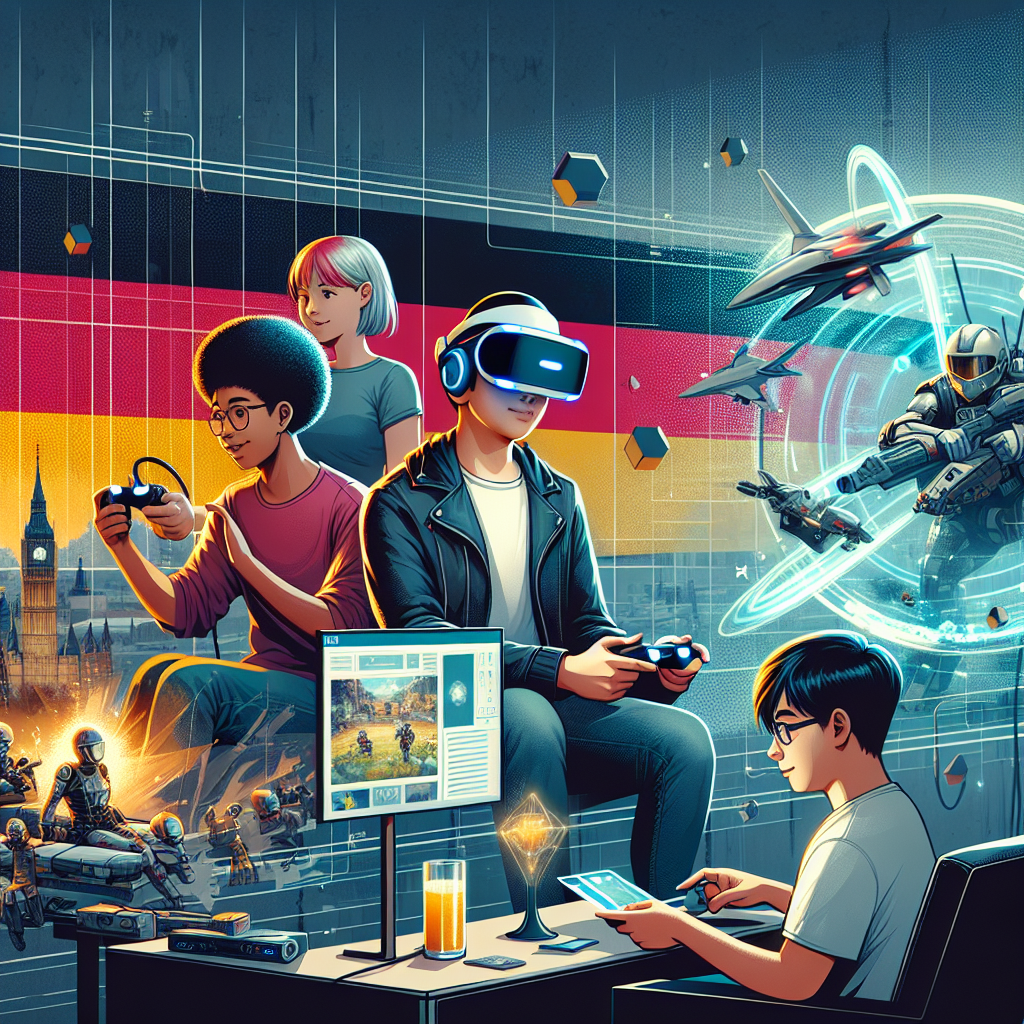Gaming Trends in Germany: What’s Hot and What’s Next in 2023
As we move further into 2023, Germany continues to solidify its position as one of the largest gaming markets in Europe, characterized by a dynamic landscape of emerging technologies, gaming culture, and evolving consumer preferences. With an estimated gaming revenue surpassing €4 billion, professional esports scenes, and a passionate community, let’s delve into the trends shaping the future of gaming in Germany.
1. Rise of Mobile Gaming
Mobile gaming has surged to the forefront of the German gaming scene. With the proliferation of smartphones and tablets, many Germans are embracing the convenience of mobile gaming. Games like “Brawl Stars” and “Call of Duty: Mobile” have gained substantial traction, achieving high engagement rates among players. Companies are increasingly investing in mobile game development, focusing on microtransactions, in-game advertisements, and social gaming elements to enhance user experience.
2. The Integration of Augmented and Virtual Reality
The demand for immersive gaming experiences is fostering the growth of augmented reality (AR) and virtual reality (VR) within Germany. Titles like “Beat Saber” and “Half-Life: Alyx” have inspired a wave of VR enthusiasts, prompting developers to create more accessible and affordable VR platforms. Events such as Gamescom 2023 highlighted the potential of AR in interactive gaming experiences, suggesting that future titles may integrate more sophisticated AR elements, blurring the lines between the digital and physical worlds.
3. Increased Focus on Sustainability and Ethics
As gaming continues to evolve, German consumers are increasingly conscious of the ethical and environmental implications of their gaming habits. Developers are responding by creating games that align with sustainability goals, implementing eco-friendly practices, and emphasizing social responsibility. Companies like Ubisoft have made strides towards reducing their carbon footprints, and many indie developers are emphasizing narratives centered on important social issues. This shift towards sustainability is likely to resonate well with German gamers, who tend to prioritize ethical consumption.
4. Esports and Competitive Gaming
Germany has long been a hub for esports, and in 2023, this trend shows no signs of slowing down. With leagues for games like “League of Legends” and “Counter-Strike: Global Offensive” garnering widespread attention, German esports organizations are expanding their reach. The introduction of live esports events and tournaments—both online and in stadiums—has amplified this competitive scene, drawing in large audiences and sponsorships. Furthermore, universities are increasingly offering esports programs, making competitive gaming a viable career path for many young Germans.
5. Game Publishing and Indie Development
The indie game development scene in Germany has seen a notable rise, with local developers producing innovative titles that capture the unique essence of German culture. Platforms like Steam and itch.io are providing indie developers with critical visibility, and events such as the Indie Arena Booth at Gamescom showcase the best in independent gaming. The trend of crowdfunding continues to support indie projects, fostering a supportive community that prioritizes creativity and originality.
6. Growth of Subscription Services
The popularity of subscription-based gaming services is on the rise in Germany. With platforms like Xbox Game Pass and PlayStation Plus providing access to extensive libraries of games for a monthly fee, players enjoy more freedom to explore a diverse range of titles. This model is particularly appealing to casual gamers who may be hesitant to invest large sums into individual games. As competition in this sector increases, we can expect more providers to enter the market, resulting in even greater choices for gamers.
7. Increased Inclusion and Diversity
The German gaming industry is increasingly prioritizing diversity and inclusion, both in the development of games and within the gaming communities. Developers are focusing on crafting characters that reflect a variety of cultures, backgrounds, and gender identities, contributing to a more relatable gaming experience. This push for inclusion is also evident in community initiatives and events designed to promote diversity and support underrepresented groups within the industry.
Conclusion
As Germany’s gaming landscape continues to transform in 2023, it’s clear that innovation, inclusivity, and sustainability are at the forefront of gaming trends. Whether it’s through the rise of mobile gaming, the explosion of esports, or the nurturing of indie developers, one thing is certain: Germany remains a vital and exciting player in the global gaming arena. As we look ahead, these trends are likely to shape not just the German market but also set the tone for gaming worldwide. With engaged communities and evolving technologies, the future of gaming in Germany looks brighter than ever.




